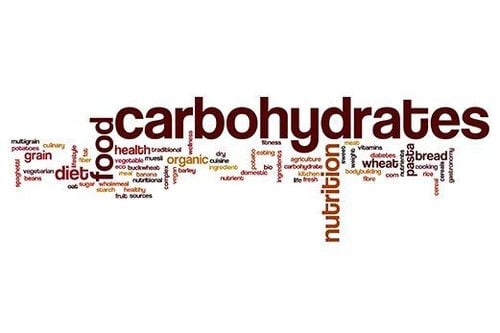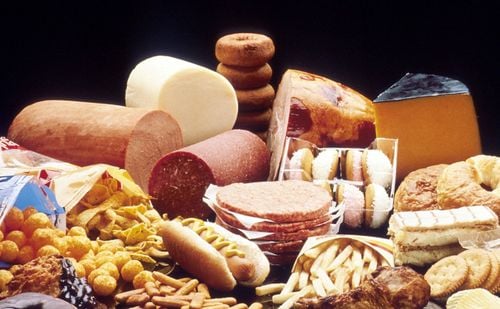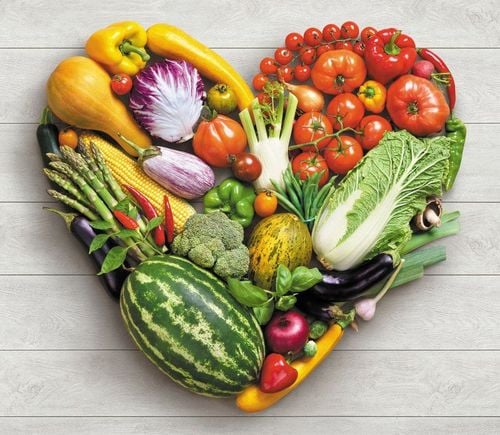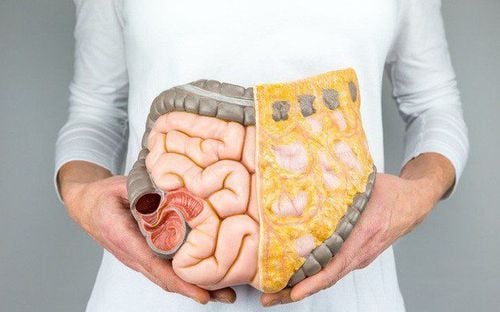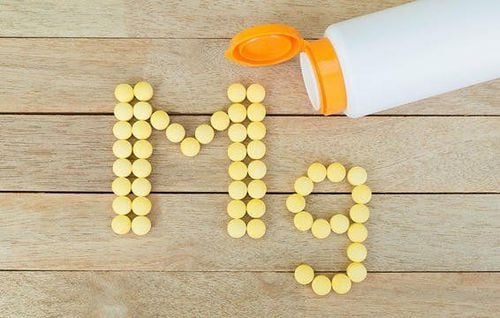This is an automatically translated article.
A healthy diet is one of the top factors for a healthy body. To practice a healthy diet well, it is necessary to understand the basics of nutrition as well as how to choose food for meals.
1. Overview of a healthy diet
Maintaining healthy dietary practices throughout life helps prevent all forms of malnutrition as well as a wide range of conditions and non-communicable diseases (NCDs).
The increasing appearance of processed foods, high urbanization rate along with lifestyle changes lead to a change in eating habits, today people consume more and more energy-rich foods. calories, fat, free sugars, and salt, while not getting enough fruits, vegetables, and foods high in fiber (such as whole grains).
In fact, it is not possible to apply only one eating style, one diet for everyone. A completely healthy diet can be formulated based on a variety of factors (age, sex, lifestyle, physical activity level, local agricultural factors, food availability and availability). personal eating preferences) while still ensuring the basic principles to be effective.
1.1. Healthy diet for adults A healthy diet for adults should ensure the following elements:
Fruits, green vegetables, legumes (such as green beans, lentils, etc.) ..), nuts and whole grains (such as brown rice, corn, wheat, barley, millet,... unprocessed). Minimum 400 g of fruit and vegetables per day (but excludes potatoes, sweet potatoes, cassava and starchy roots).

Chế độ ăn tăng khẩu phần trái cây trong ngày ở người trưởng thành
Free sugars will provide less than 10% of your total daily energy intake, which is the equivalent of 50 g (or about 12 teaspoons) of free sugar for a daily energy requirement of 2000 calories in a healthy adult. However, for more health benefits, the ideal level would be less than 5% of total daily energy intake. Free sugars are defined as all sugars added to foods and beverages by manufacturers, processors or users, as well as natural sugars found in honey and syrups. ), fruit juice and fruit juice concentrate.
Fat provides less than 30% of total daily energy intake. Unsaturated fats (found in fish, avocados and nuts, sunflower, soybean, canola and olive oils) should be preferred over saturated fats (have in fatty meats, butter, palm and coconut oils, cream, cheese, refined butter and lard) and all trans fats, including industrially produced trans fats (found in fried and baked foods, prepackaged foods and fast foods, such as frozen pizzas, cakes, cookies, muffins, emulsions and frying oils) and fats trans form in herbivores (found in the meat and dairy products of herbivorous animals, such as cows, sheep, goats, and camels). The amount of energy from saturated fats should make up less than 10% of total daily energy intake, and for trans fats should make up less than 1%. Industrially produced trans fats are harmful to health and should be avoided if you want to practice a healthy diet. Salt should use iodized salt, and should not be consumed more than 5g per day (equivalent to about a teaspoon).

Sử dụng muối iod với hàm lượng nhất định đối với người trưởng thành
Basically, a healthy diet for children and young children is similar to that for adults, but the following factors should be kept in mind:
Babies need to be exclusively breastfed for 6 months early in life, and can continue to breastfeed until the child is 2 years old if possible. From the age of 6 months onwards, in addition to breast milk, children need to be given complementary foods with appropriate amounts, rich in nutrients and ensure food safety. Salt and sugar should not be added to supplements.
2. Some guidelines for healthy diet practices
2.1. Fruits and vegetables Eating at least 400 g of fruits and vegetables a day helps reduce the risk of non-communicable diseases and ensures the necessary amount of fiber for the body every day. To ensure adequate consumption of fruits and vegetables, remember:Always use green vegetables with every meal. Eat raw fruits and vegetables instead of junk food. Prioritize the use of seasonal fruits and vegetables. Use a variety of different fruits and vegetables.
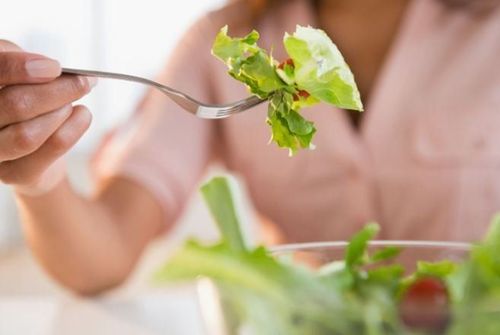
Chế độ ăn tăng rau xanh trong bữa ăn hằng ngày giúp lượng chất xơ được cung cấp đầy đủ
Energy intake from saturated fats should be less than 10% of total daily energy intake. Energy intake from trans fats should be less than 1% of total daily energy intake. Instead of consuming saturated fats and trans fats, use unsaturated fats, especially polyunsaturated fats.
To reduce the amount of fat absorbed into the body, you can:
Cook dishes by boiling, steaming instead of frying. Use cooking oils rich in polyunsaturated fats such as soybean oil, canola oil, sunflower oil, etc. Use skim milk products, use lean meat or eliminate possible fat. visible on the meat. Limit your consumption of fried foods, prepackaged foods, or junk food. 2.3. Salt Each person should consume less than 5g of salt per day. To limit your salt intake, please:
Limit the use of salt or products containing a lot of salt (eg sauces, broths, ...) when preparing and cooking dishes. Do not place salt shakers or sauces containing a lot of salt on the table. Limit your intake of foods that are high in salt. Choose products that are low in salt.
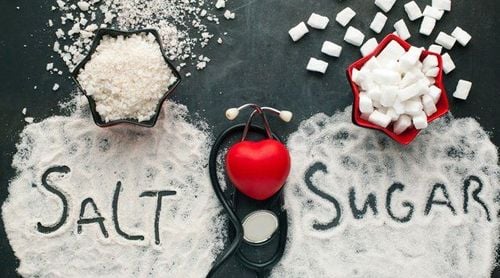
Muối và đường là hai loại gia vị cần được sử dụng với liều lượng cho phép
2.4. Sugar In both children and adults, free sugars should provide no more than 10% of your total daily energy intake, and for more health benefits, should be limited to less than 10% of total energy intake. 5%.
To limit the amount of sugar put into the body, please:
Limit the consumption of foods and drinks containing high sugar content, such as high-sugar snacks, candy, sweet drinks,... When you want Snacks, eat raw fruits and vegetables. Customers can directly go to Vinmec health system nationwide to visit or contact the hotline here for support.
Articles refer to sources: WHO and NHS




